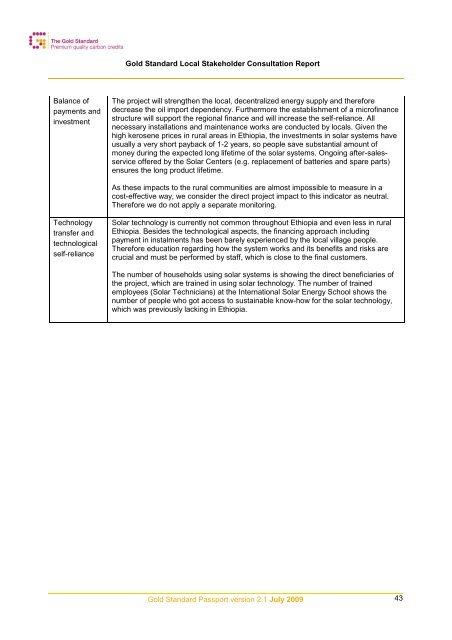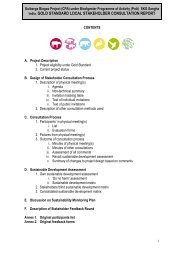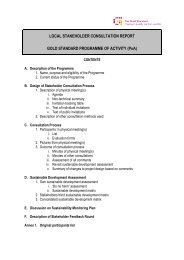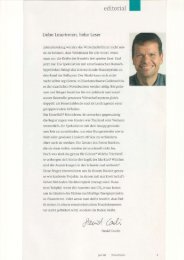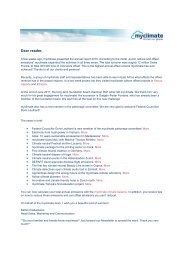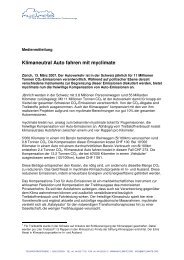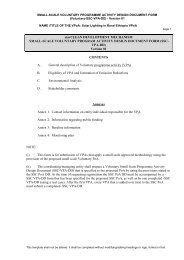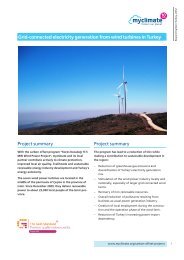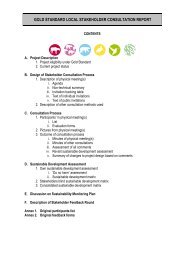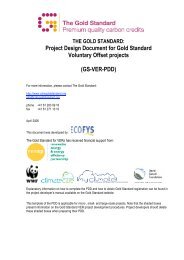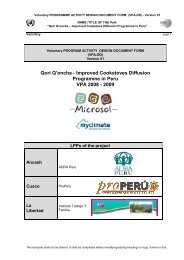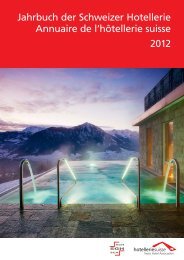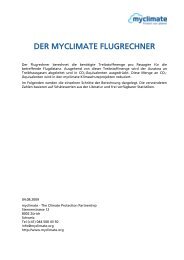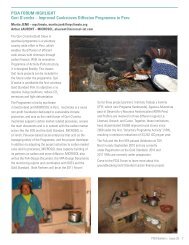GSV2 LSC-Report-VPA1 - MyClimate
GSV2 LSC-Report-VPA1 - MyClimate
GSV2 LSC-Report-VPA1 - MyClimate
You also want an ePaper? Increase the reach of your titles
YUMPU automatically turns print PDFs into web optimized ePapers that Google loves.
Balance of<br />
payments and<br />
investment<br />
Technology<br />
transfer and<br />
technological<br />
self-reliance<br />
Gold Standard Local Stakeholder Consultation <strong>Report</strong><br />
The project will strengthen the local, decentralized energy supply and therefore<br />
decrease the oil import dependency. Furthermore the establishment of a microfinance<br />
structure will support the regional finance and will increase the self-reliance. All<br />
necessary installations and maintenance works are conducted by locals. Given the<br />
high kerosene prices in rural areas in Ethiopia, the investments in solar systems have<br />
usually a very short payback of 1-2 years, so people save substantial amount of<br />
money during the expected long lifetime of the solar systems. Ongoing after-salesservice<br />
offered by the Solar Centers (e.g. replacement of batteries and spare parts)<br />
ensures the long product lifetime.<br />
As these impacts to the rural communities are almost impossible to measure in a<br />
cost-effective way, we consider the direct project impact to this indicator as neutral.<br />
Therefore we do not apply a separate monitoring.<br />
Solar technology is currently not common throughout Ethiopia and even less in rural<br />
Ethiopia. Besides the technological aspects, the financing approach including<br />
payment in instalments has been barely experienced by the local village people.<br />
Therefore education regarding how the system works and its benefits and risks are<br />
crucial and must be performed by staff, which is close to the final customers.<br />
The number of households using solar systems is showing the direct beneficiaries of<br />
the project, which are trained in using solar technology. The number of trained<br />
employees (Solar Technicians) at the International Solar Energy School shows the<br />
number of people who got access to sustainable know-how for the solar technology,<br />
which was previously lacking in Ethiopia.<br />
Gold Standard Passport version 2.1 July 2009<br />
43


